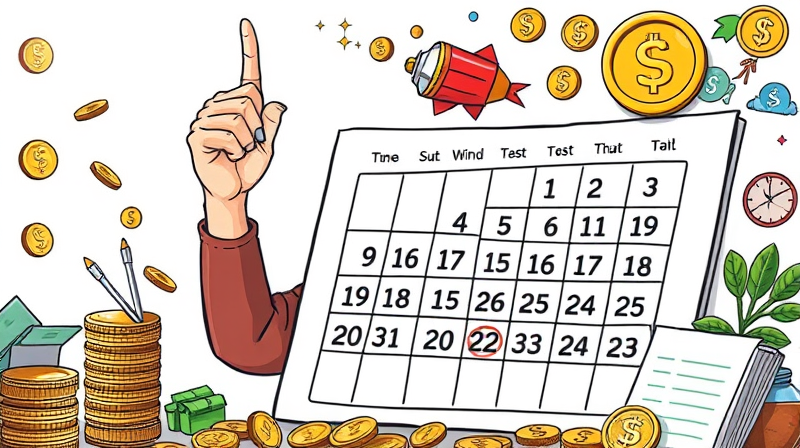Freelancers and gig workers enjoy unparalleled freedom, but that flexibility can come with financial uncertainty. Without a predictable paycheck or employer-sponsored benefits, it’s vital to build a robust plan that adapts to fluctuating income streams.
By developing practical strategies and cultivating disciplined habits, independent professionals can safeguard their financial future and pursue their passions with confidence.
Assessing Your Financial Baseline
The first step in any financial journey is understanding your starting point. Conduct a thorough self-assessment by tracking every income source—project fees, tips, or affiliate earnings—and itemizing fixed and variable expenses.
Calculate your lowest monthly income over the past year. This “baseline income” becomes the foundation for your core budget, ensuring you can cover essentials even during lean months.
Analyze discretionary spending and subscription services, trimming unnecessary costs to maximize your buffer. A clear picture of inflows and outflows equips you to make informed decisions and maintain steady cash flow management.
Budgeting and Cash Flow Management
With your baseline established, create a conservative budget that prioritizes essentials: housing, utilities, groceries, and insurance. Anchor your spending plan to your lowest consistent earnings to avoid shortfalls.
- Create a budget based on baseline income
- Invoice promptly and follow up regularly
- Use apps to track spending and income
- Plan for lean months with conservative estimates
Building a Robust Emergency Fund
Unpredictable workloads make a strong emergency cushion indispensable. Aim to save at least three months of essential expenses, though aspiring to six months offers extra security.
Keep these reserves in a separate, high-yield savings account for quick access. By maintaining 3 to 6 months’ savings, you can weather slow periods without disrupting long-term goals.
Tax Planning Essentials
Freelancers must manage their own tax liabilities. Set aside 25–30% of your gross earnings to cover federal and state obligations, and pay quarterly estimated taxes to avoid penalties.
- Reserve 25-30% of gross earnings
- Make quarterly estimated tax payments
- Deduct eligible business expenses
- Consult a tax professional annually
Insurance and Retirement Strategies
Independent workers lack employer benefits, so securing your own coverage is critical. Explore health plans via marketplaces or professional associations, and consider disability or liability insurance based on your risk profile.
Focus on long-term security by opening retirement vehicles. Options like SEP IRAs or Solo 401(k)s allow for significant contributions, helping you achieve retirement accounts optimized for growth.
- Choose health plans via marketplace or associations
- Consider disability and liability coverage
- Open SEP IRA or Solo 401(k)
- Make consistent retirement contributions
Separating Business and Personal Finances
Clear distinctions between your company’s earnings and personal spending simplify accounting and prepare you for tax season. Maintain separate bank accounts and credit cards dedicated to business expenses.
Consider establishing an LLC or other legal entity to limit liability and enhance credibility. Integrate accounting software to track invoices, payments, and receipts, ensuring separate business finances from personal finances.
Ongoing Education and Tools
The financial landscape evolves constantly. Commit to continuous improvement by attending webinars, reading specialized blogs, and networking with peers or mentors who understand the gig economy’s nuances.
Schedule quarterly financial check-ins to review goals, adjust budgets, and track progress. Cultivating an unwavering commitment to learning will keep you adaptable and informed.
Your journey as a freelancer or gig worker is marked by creativity, independence, and personal growth. By applying these strategies—anchored in discipline, foresight, and resourcefulness—you can achieve financial freedom and peace.
References
- https://www.finnyai.com/blog/11-tips-on-how-to-create-a-financial-plan-for-freelancers-and-gig-workers
- https://blog.avibra.com/managing-money-education-savings-gig-economy-workers/
- https://blog.avibra.com/discounts-savings-gig-workers-strategies/
- https://www.allgoodfin.com/blog-01/navigating-gig-economy-financial-planning-freelancers
- https://www.fultonbank.com/Education-Center/Saving-and-Budgeting/Personal-Finance---5-Tips-for-Freelancers
- https://www.resumenerd.com/blog/gig-economy-statistics
- https://www.cpajournal.com/2018/09/05/financial-planning-for-workers-in-the-gig-economy/
- https://www.dyadicfinancial.com/blog/thriving-in-the-gig-economy










